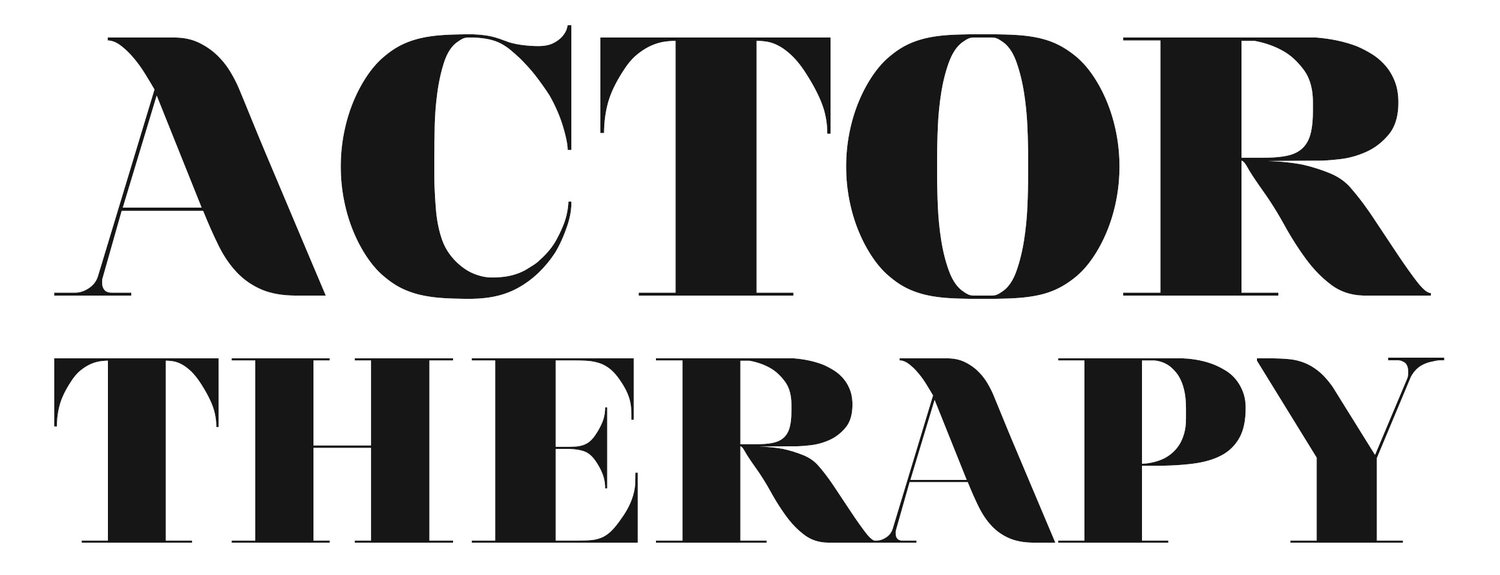Let's Talk About #Vulnerability!
Let’s talk about #vulnerability…
“I need to be honest with you. I only represent people with big credits on their resumes, but you should keep going.” Ever had a nightmare audition like this? Me too, and I felt very #vulnerable after.
But why is vulnerability so important to our art?
Dr. Brené Brown, a research professor from The University of Houston and a NY Times Bestselling Author, has one of the top five most-viewed TED talks on our very topic: The Power of Vulnerability..
Dr. Brown learned through her studies on courage that we have to “walk through vulnerability to get to courage, therefore . . . embrace the suck”— something she had to teach herself to do for years after. She discovered that the most vulnerable individuals she interviewed owned their sense of love and belonging. In turn, they were manifesting the lives they desired.
But that’s easier said than done, if you’re someone like me who has already plotted the 45 ways to exit a room in the event of an emergency. Like, Dr. Brown, I had to teach myself how to be vulnerable.
Practicing vulnerability came through my assignments in Scene Study and Actor Therapy. Coaching RSO’s “Cut You A Piece” helped me open up to someone new, and I’ll never forget overcoming physical insecurities while working on The Normal Heart with Tiffany McCullough— spoiler alert: the character has to remove everything but his undies. I had to let the work mean something. I had to relate the people, circumstances, settings in my assignments to situations in my own life.
Working with Kirsten Wyatt and Peter Duchan in Actor Therapy’s Scene Study program, we talk a lot about vulnerability. We discover how to drop in: to be with yourself (mentally and physically) while removing everyone else from the room (except your scene partners, of course). Dropping in helps you be the freak you might be behind closed doors, without feeling like everyone is going to laugh at you. It helps you listen to your scene partner instead of showing that you “did the homework”. It inadvertently aided my vulnerability in networking environments, with family, and even on dates.
On Oprah’s Super Soul Conversations Podcast, Julia Roberts was asked, “when do you think you are the most vulnerable?”
“It’s sort of my job to be vulnerable almost at all times at work. When you do present your performance for whatever it is: the first take, or the first performance of a stage play, or whatever it is... All you’re waiting for is the response to it. And the response might be positive and encouraging and reassuring, and it might also be ‘okay, well that was terrible.’ Really the hard part is the next take, or the next performance, or the next day to still be able to go into a place of exposing your feelings for what you’re doing and showing what you think is the truth of what you’re trying to perform and setting aside the risk of failure.”
So, sometimes things don’t work out. Sometimes an agent is going to tell you you’re not special enough for him. That’s okay in my book. It’s part of the journey. RSO says, “Sometimes, being your truest, most vulnerable self means you aren’t for everybody... but you’re for somebody. So keep searching for that. Lindsay and I have certainly experienced a lot of that.”
Gerry Vega has most recently performed and produced his two solo-cabarets: Growing Up? and Pennies from Heaven — at The Duplex and Don’t Tell Mama. A proud member of Actors’ Equity Association, he has performed at Santa’s Village (Berry the Elf) and as Brother Bear in the National Tour of Berenstain Bears Live: in Family Matters! The Musical. IG: @vegager


